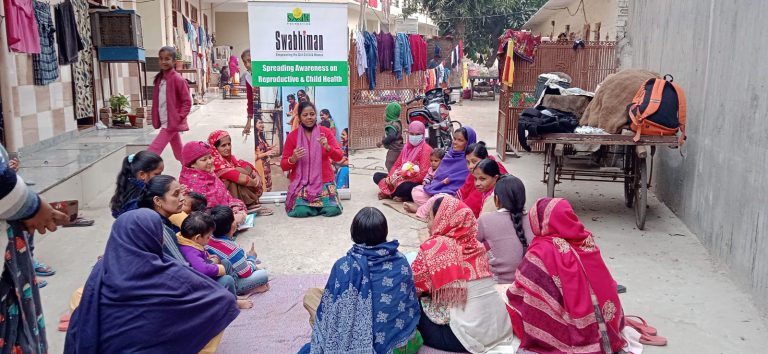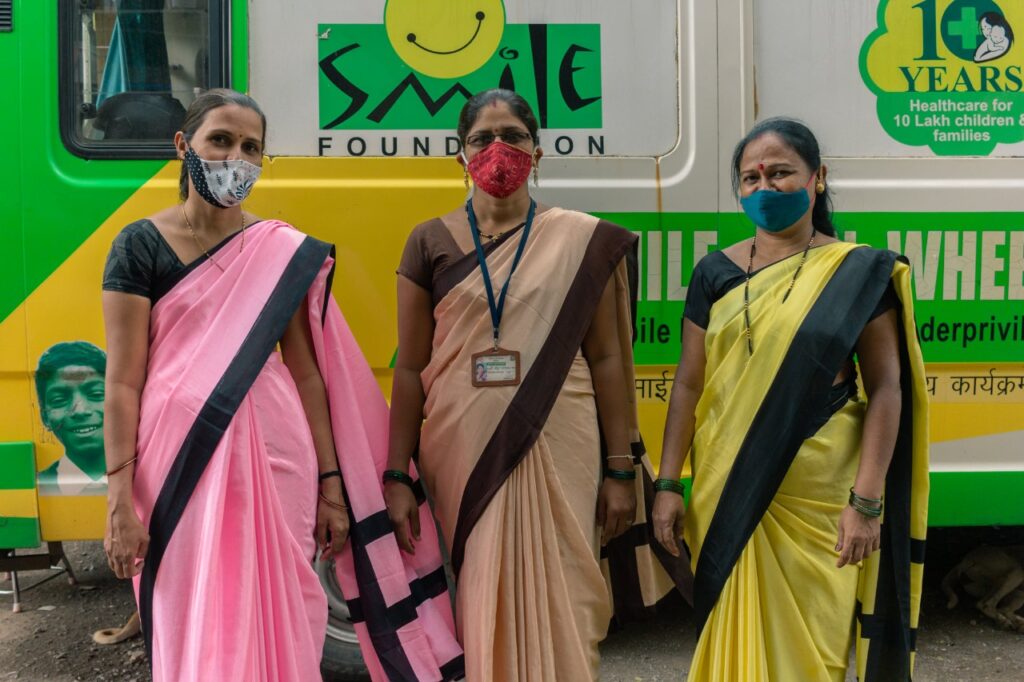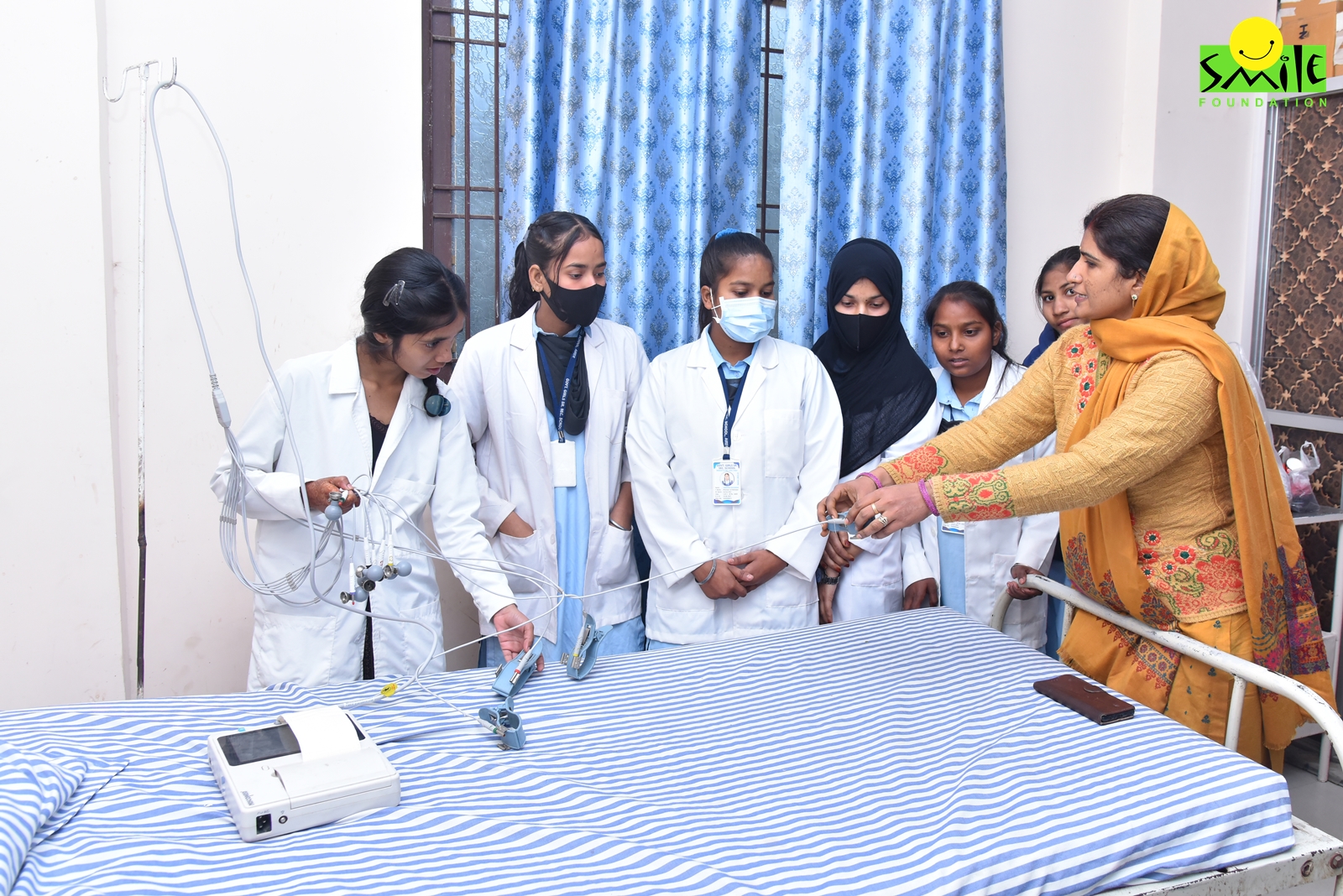In a country as large as India, it is impractical and nearly impossible for healthcare workers to be available in every village and every remote corner. This where the role of community mobilizers comes in. They are a vital part of the healthcare system as they are often the first point of contact or information related to health, vaccinations, and so on. This includes both Anganwadi and ASHA workers.
Anganwadi and ASHA workers
ASHA workers come under the ambit of India’s National Rural Health Mission. They act as the first point of contact for any health-related issue in rural areas. The most marginalized communities in the country depend on ASHA workers for doorstep healthcare services. The women who work as ASHA workers have played a huge part in bringing down maternal and infant mortality rates. They inform and educate the communities, right from pregnancy, to childbirth, lactation, and even after that. Moreover, ASHA workers also help marginalized women with institutional deliveries. As per the scheme, every village in the country must have an ASHA worker. This is a trained female community health activist who belongs to the village itself. She is accountable to the people and works as an interface between the community and the public health system.
Anganwadi workers primarily work on nutrition of children. They come under the umbrella of Integrated Child Development Services of the government.
Even amid the pandemic, this force of community mobilizers played a large role in informing, educating, and collecting data. They have also been at the forefront of many immunization initiatives over the years. During the pandemic, they were responsible for contact tracing as well as ensuring that migrant workers quarantined properly.
What all services do community mobilizers provide?
Anganwadi and ASHA workers are responsible for a number of nutrition and healthcare services. Some of these are as follows.
ASHA
Promoters good health practices in the community.
Provide a minimum package of appropriate and feasible curative care.
Arrange for timely referrals.
Generate community awareness concerning various aspects of health. These include basic sanitation and hygiene (promoting WASH), healthy living conditions, balanced nutrition, and so on.
Counsel women over the course of their pregnancy and after childbirth. They educate women about birth preparedness, institutional delivery, breastfeeding, immunization of the child, contraception, and prevention of common infections.
Facilitate the community’s access to health-related institutional services.
Provisions essential items like oral rehydration solution and so on.
Anganwadi
Elicit community support and participation in various programmes.
Carry out surveys with special focus on mothers and children.
Organise non-formal pre-school activities for children.
Educate mothers about supplementary nutrition.
Provide health and nutrition education.
Conduct home visits to educate parents about the growth and development of their children.
Keep track of possible outbreaks of diseases such as cholera.
Guide ASHAs in carrying out their responsibilities and in maintaining records.
Why are community mobilizers crucial to the healthcare infrastructure?
The responsibilities of ASHAs and Anganwadis listed above make it clear that they are at the frontline of the healthcare infrastructure of rural areas and even in urban villages. Being from the community themselves, they are trusted and counted on by the community. These women at the grassroots are the main force for improving health and nutritional status among our impoverished masses.
The pandemic also gave us some community leaders

Fifty-year old Savita is a resident of Surat Nagar Phase 2 in Gurgaon. She has been working for her community for the past five years. However, it was during the COVID-19 lockdowns over the past two years that she has emerged as a true change-maker.
Savita suffered a huge loss in her personal life during the pandemic. She lost her husband. Despite this, she kept working tirelessly for her people. During the pandemic, all primary healthcare services had come to a standstill. At this time, she ensured institutional deliveries of at least 10 women from her community.
Singlehandedly, she coordinated with health authorities and the families of expecting women to ensure that they reach hospitals in time for their deliveries.
She is also regularly counseling women in her community on reproductive health and guiding them on good health practices.









